We strive to provide you with authoritative, trustworthy, and expert advice. In doing so, the staff at bbqdropout.com performs extensive research, editing, and fact checking to every post on this webiste. If you feel that this article can improve, please feel free to reach us at staff@bbqdropout.com
Before continuing this article, I wanted to let you know that I have a YouTube channel where I showcase all sorts of video content related to BBQ. Subscribing would mean a lot to me, and I very much appreicate all the support!
How To Soften Tough Brisket
If you would like to know how to soften a brisket, then you should consider cooking it long enough to where the connective tissue within the meat will begin to break down and render properly.
If you do not do this, then you risk having a brisket that is either under cooked or perhaps even over cooked.
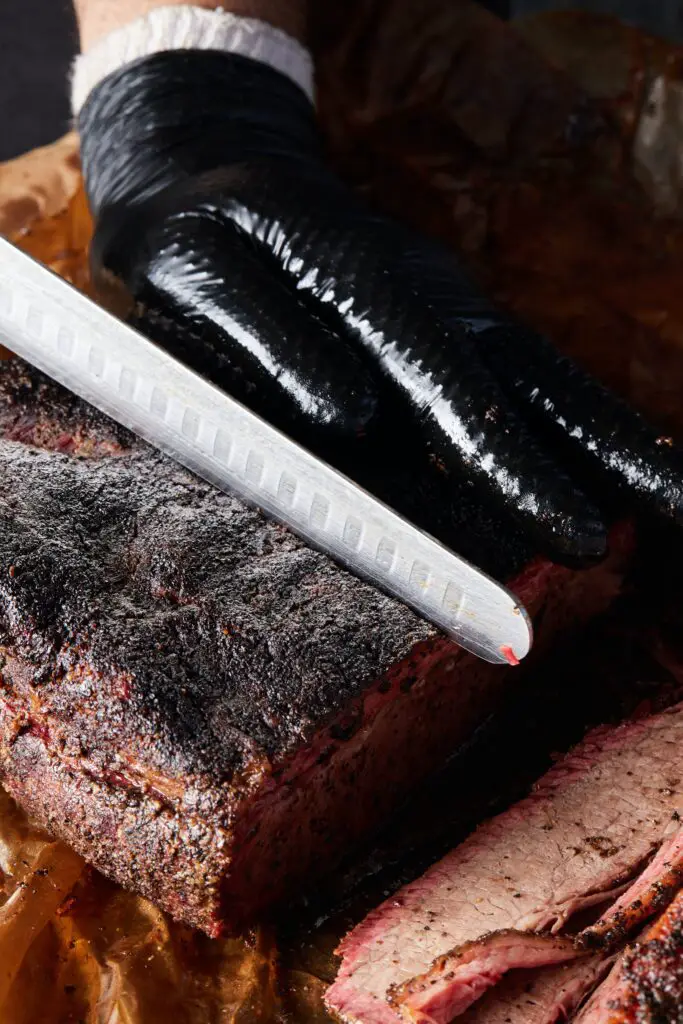
To tell if a brisket is undercooked, then you should consider what temperature you have smoked it out up to this point and how the meat itself is probing regarding the temperature.
The temperature for a finished brisket should be around 200°F.
If it is not around this point in time, then you may have a severely under cook brisket.
Undercooked briskets tend to be very tough in nature, and quite chewy.
It’s not a very pleasant experience.
One of the great things however, is if you actually have a brisket that has been undercooked, then you have a chance on making it a lot more soft and tender by simply cooking it a longer period of time.
This basically means just ensuring that the connective tissue has a chance to break down a little bit more.
Is Overcooked Brisket Tough?
Over cooked brisket is usually not that tough.
Often times, it is rather tender, but very dry and crumbly.
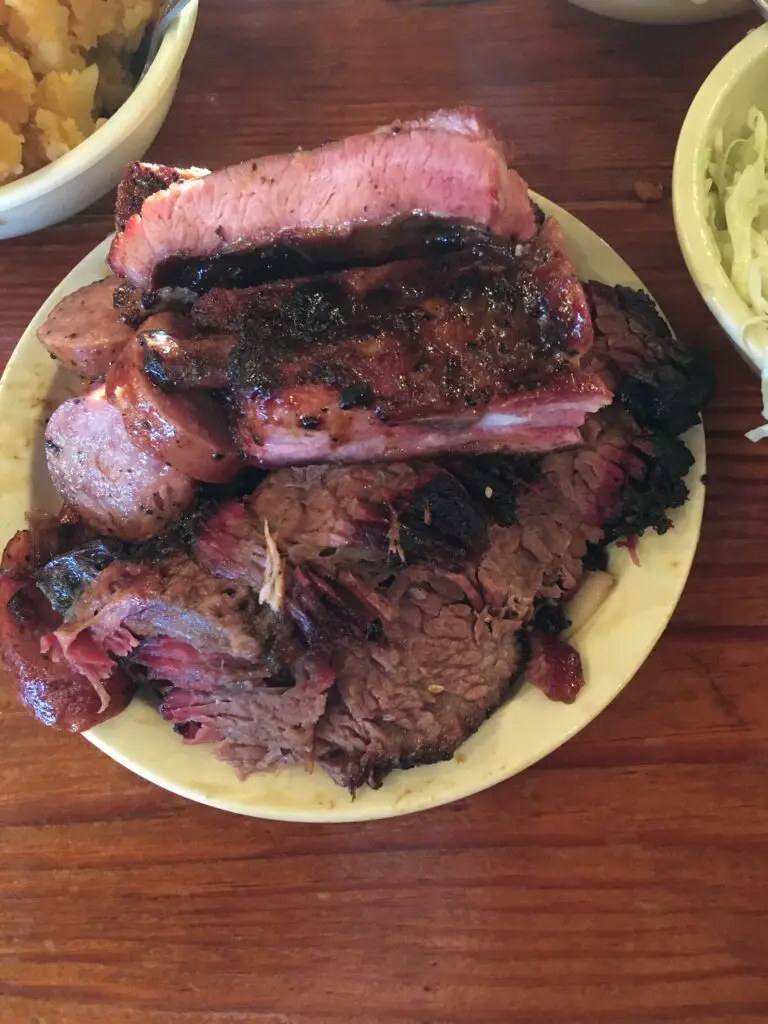
If you have a brisket that you suspect is way over cooked, these are the tell tale signs.
If you happen to have a brisket that is tough, you should automatically be thinking that it is under cooked and in fact not over cooked. Never cooked brisket simply are not that tough at all.
Why Is My Brisket Not Tender?
There can be a limitless amount of reasons as to why a brisket is not tender.
The most common of which, is that a brisket is severely undercooked.
As mentioned above, it is quite common to have people smoking brisket but not smoke it long enough.
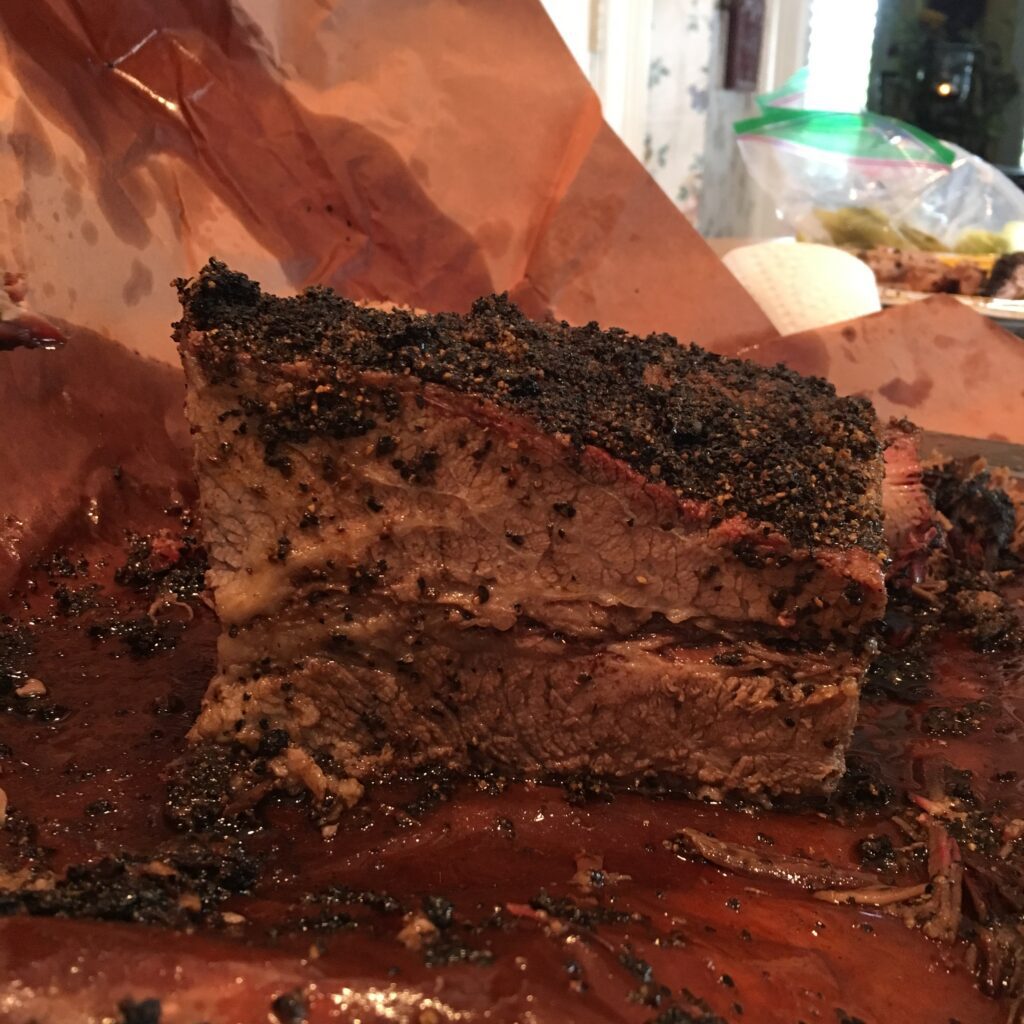
All the times, most inexperienced Pit-masters will think that cooking a brisket to a desired temperature will suffice, this cannot be further from the truth.
In fact, you actually don’t even really want to pay attention that much to the temperature readings from your meat probe to begin with.
Use it as more of a guideline for anything else.
To ensure that you can obtain a brisket that is soft and tender, make sure to provide the meat in all areas and ensure that there is no resistance present whatsoever.
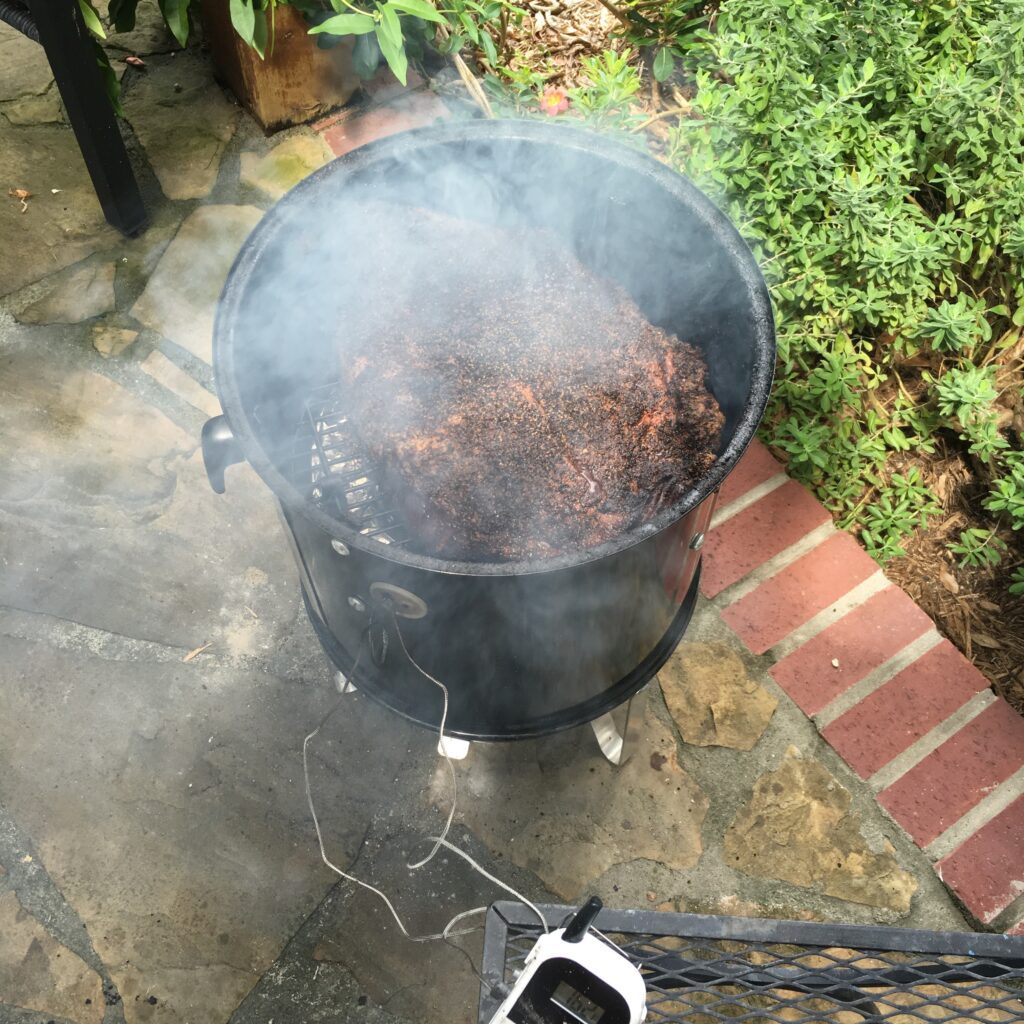
That is actually how you know every skin is tender and done.
How Do You Make Brisket More Tender?
Making a brisket more tender is very important.
You do not want a brisket that is rather tough or even dry and crumbly.
You have to get it just right.
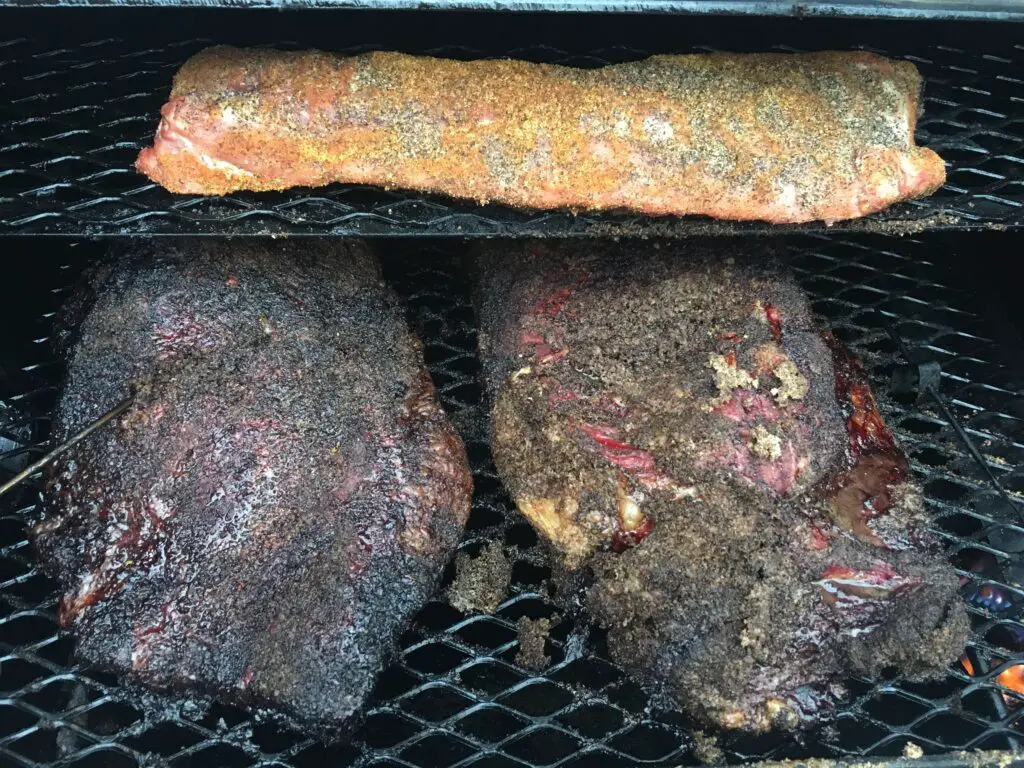
To do that, go ahead and assess whether or not the brisket is tough, dry, or crumbly.
If it is very tough then it is more than likely undercooked.
This is actually a good sign when considering all you have to do is throw it back onto the smoker for another couple hours or so until it probes tender.
Why Is My Brisket Tough And Chewy?
A brisket that is tough and chewy is more than likely a sign that the meat is not cooked through all the way.
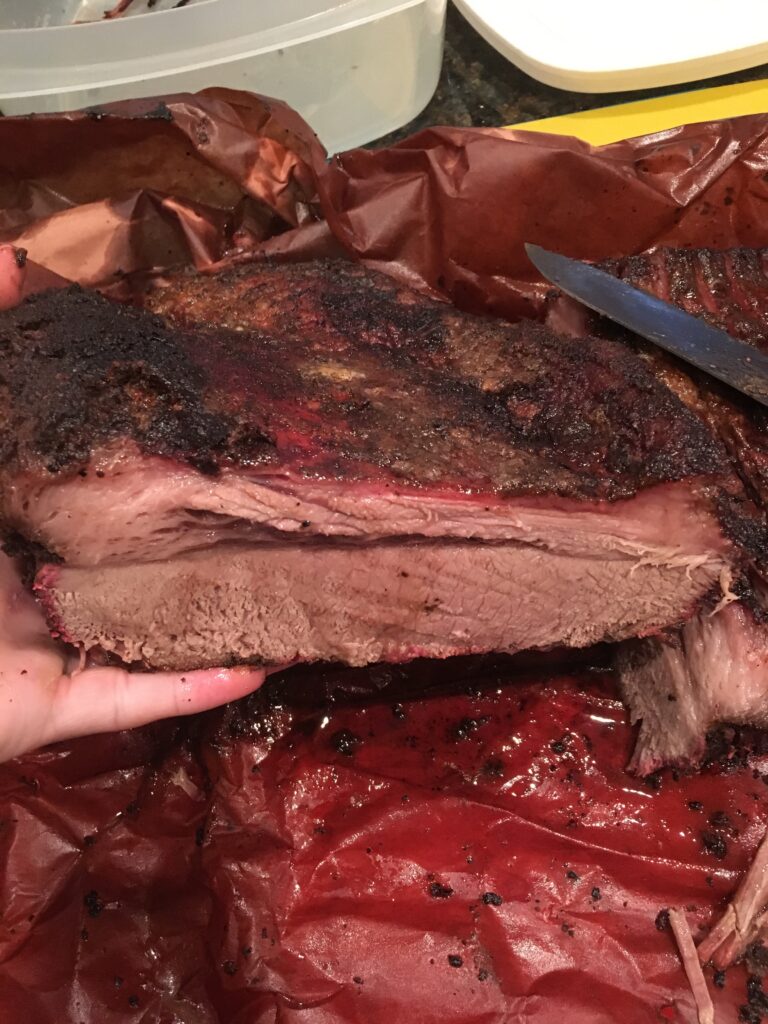
Anytime you find yourself not being able to slice into a brisket, that means that it is usually way too tough and by default is way too undercooked.
All you have to do, is cook it a little bit longer on the smoker.
Break down the connective tissue within, and enjoy a nice tender brisket.
What Can I Do With Leftover Tough Brisket?
If your brisket is tough but you’ve already sliced into it and ate a substantial amount, what you can do is obviously just store until you’re ready to eat it again.
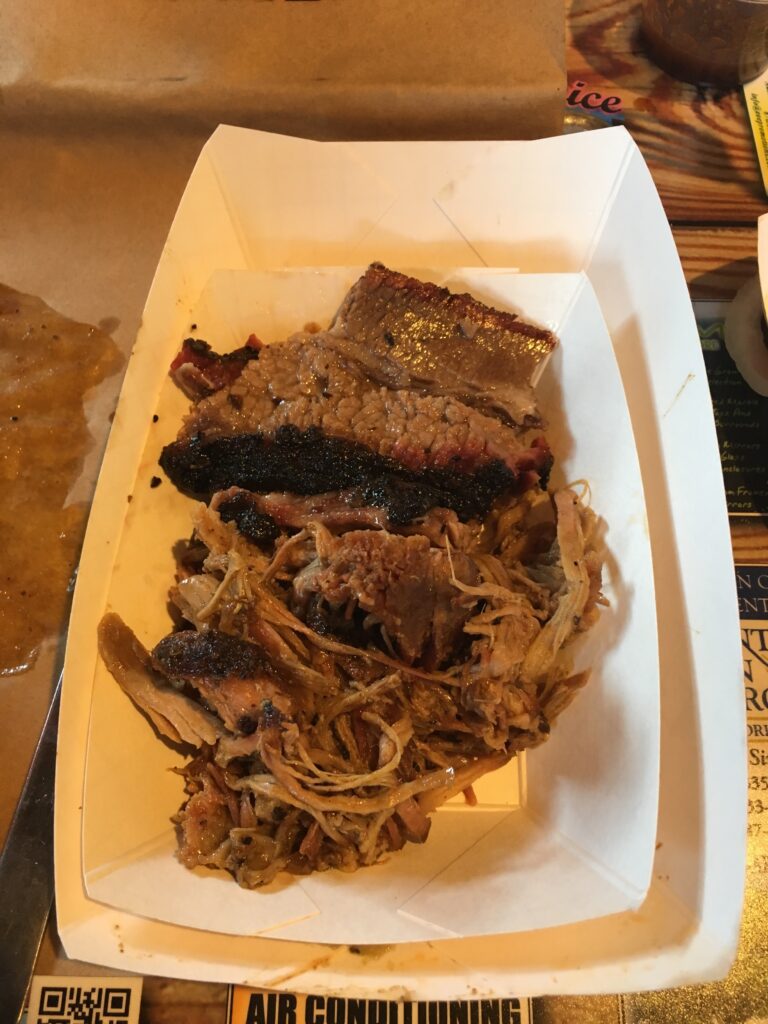
Once you’re ready to eat, go ahead and try and actually cook it a little bit longer than you would have otherwise done.
Basically, you don’t want to just simply reheat the brisket especially if it is nice and tough.
Cook further and allow more of the connective tissue to break down.
Make sure to also not dry the brisket out if you were just trying to do this with a few slices of brisket itself.
If that is the case, consider sealing it with foil and perhaps even putting apple cider vinegar or some kind of brisket juice inside of the foil to keep the meat nice and moist as it continues to render down further.
Robert is a certified Pitmaster, with over a decade of experience in smoking the best meats you’ll ever feast upon. He also has a Bachelor of Business Administration from the University of Texas at San Antonio. When he’s not researching technical topics, he’s most likely barbecuing in his backyard.
